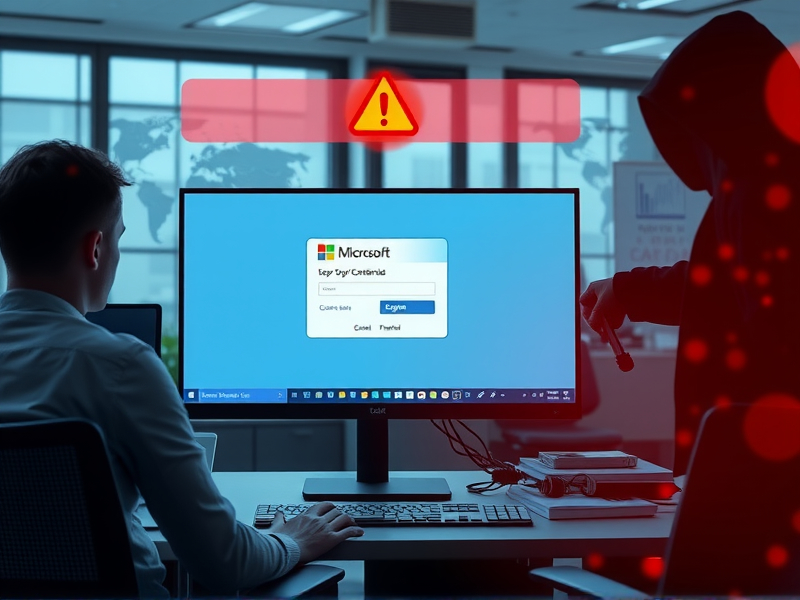Threat Overview
A new threat report published by AlienVault on October 21, 2025, has revealed a concerning development in cyber threats. The report, titled ‘Tykit Analysis: New Phishing Kit Stealing Hundreds of Microsoft Accounts in Finance,’ details the emergence of a sophisticated phishing kit named Tykit. This kit has been actively targeting Microsoft 365 accounts since May 2025, employing a multi-stage attack chain that utilizes SVG files as delivery vectors.
Actor Group and Campaign Details
The specific actor group behind this campaign remains unidentified in the report, but their tactics indicate a high level of sophistication. The Tykit phishing kit mimics Microsoft login pages to deceive users into entering their credentials. It employs various evasion tactics and executes client-side code in multiple stages, making it difficult for traditional security measures to detect.
Affected Industries and Geographical Spread
The most affected industries include construction, professional services, IT, finance, government, and telecom. Victims of this phishing campaign are spread across the US, Canada, LATAM, EMEA, Southeast Asia, and the Middle East, highlighting the global reach of this threat.
Technical Analysis
The Tykit phishing kit uses Cloudflare Turnstile for anti-bot protection and implements basic anti-debugging measures to evade detection. The stolen credentials are exfiltrated through a series of API calls to its command and control servers, ensuring that the attackers can access the compromised accounts without raising suspicion.
Confidence Level and Reliability
The confidence level in the accuracy of this report is 100%, indicating that the findings are robust and reliable. The reliability of the report is rated as ‘A – Completely reliable,’ providing security analysts with a high degree of assurance in the information presented.
Recommendations for Mitigation
User Awareness: Educate employees about the risks of phishing attacks and how to recognize suspicious emails or login pages. Regular training sessions can help users stay vigilant against such threats.
Multi-Factor Authentication (MFA): Implement MFA for all Microsoft 365 accounts to add an extra layer of security. Even if credentials are stolen, MFA can prevent unauthorized access.
Email Filtering: Use advanced email filtering solutions to detect and block phishing emails before they reach users’ inboxes. Regularly update the filters to keep up with new phishing techniques.
Network Monitoring: Deploy network monitoring tools to detect unusual activity that may indicate a successful phishing attack. Prompt detection can help mitigate the damage caused by such attacks.
Regular Security Audits: Conduct regular security audits to identify vulnerabilities in the organization’s systems and address them promptly. This proactive approach can help prevent future attacks.
External References
For additional technical details, refer to the following external references:
Conclusion
The discovery of the Tykit phishing kit underscores the evolving nature of cyber threats and the need for robust security measures. Organizations must remain vigilant and proactive in their approach to cybersecurity, implementing a combination of user awareness, technical controls, and regular audits to protect against such sophisticated attacks.


